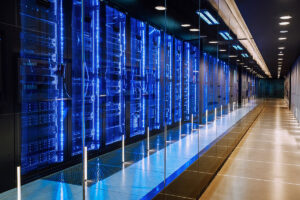
Technical businesses are at the forefront of developing cutting-edge technology, software, and systems that shape the future. From software development firms and tech startups to data centers and engineering consultancies, these businesses house highly sensitive information that must be protected at all costs. While cybersecurity gets a great deal of attention, we should never forget about the importance of physical security — specifically, security guards. These professionals play a critical role in protecting technical businesses by maintaining order, monitoring access, and preventing breaches in the physical environment.
The Role of Security Guards in Technical Businesses
Security guards are trained professionals who provide vigilant, non-aggressive protection for commercial facilities. In technical businesses, they serve as the first line of defense against unauthorized access and other threats that could compromise sensitive information. Security guards focus on surveillance, communication, and access control — all essential aspects of maintaining a secure and professional environment.
Why Physical Security Still Matters in a Digital World
When we think about protecting technical businesses, digital threats such as hacking, phishing, and malware often come to mind. However, physical security is just as vital. A breach of a secure server room, unauthorized access to a design lab, or even theft of company laptops can be just as damaging as a cyberattack. Security guards act as a visible deterrent to individuals who may attempt to exploit physical vulnerabilities.
Access Control and Visitor Management
One of the most critical tasks security guards handle is access control. By monitoring entry and exit points, checking IDs, and managing guest logs, they ensure that only authorized personnel gain access to restricted areas. This significantly reduces the risk of espionage, intellectual property theft, and data leakage — threats that technical businesses are especially vulnerable to.
For example, in a company developing proprietary software, it’s essential that only certain teams have access to the development floor. A security guard stationed at the entrance can verify credentials and deny access to unauthorized visitors, ensuring sensitive projects remain confidential.
Surveillance and Incident Reporting
Security guards also play a crucial role in monitoring surveillance systems. Whether they are stationed in a control room or patrolling the premises, they are trained to identify unusual behavior or security risks. Their real-time observations can prevent incidents before they escalate.
Moreover, these guards are responsible for documenting and reporting any suspicious activity, equipment malfunctions, or safety concerns. Their detailed reports help technical businesses maintain compliance with internal policies and external regulations — another key factor in protecting sensitive operations.
Employee and Asset Protection
In addition to protecting proprietary information, security guards help maintain a safe workplace. Their presence can de-escalate tensions, prevent workplace theft, and ensure employees feel secure while on the job. This is particularly important in technical businesses, where high-value equipment such as servers, specialized machinery, and prototype devices are often used.
Security guards are also trained in emergency response procedures, such as evacuations or medical assistance, adding another layer of safety for staff and assets alike.
Supporting Confidentiality and Compliance
Many technical businesses must adhere to strict confidentiality agreements and industry regulations, especially those in sectors like biotechnology, defense contracting, or software development. Physical breaches can result in costly compliance violations. Security guards enforce policies regarding badge use, secure zones, and prohibited behaviors, helping ensure the company remains compliant with contractual and legal obligations.
Enhancing Cybersecurity Through Physical Presence
While security guards don’t deal directly with firewalls or encryption protocols, they complement cybersecurity measures by protecting the hardware and access points where digital threats originate. Preventing someone from physically accessing a network hub or plugging in an unauthorized USB drive is just as important as defending against malware.
By combining vigilant access control with proactive monitoring and a professional presence, these guards support a holistic security posture that integrates physical and digital protections.
A Vital Piece of the Security Puzzle
When it comes to protecting technical businesses, security guards are a vital — yet often underappreciated — component. They prevent unauthorized access, protect employees and assets, enforce policies, and support overall business continuity. In a time when data is more valuable than ever, overlooking the role of physical security could be a costly mistake. Investing in trained, professional security personnel ensures your technical business is secure from the ground up.
CES is Dedicated to Serving Our Community
Since opening in 1975, we have been committed to serving businesses in the District of Columbia, Maryland, and Virginia. Our values include proactive communication, honesty, reliability, and quality. We also believe in paying unparalleled attention to detail, no matter which service you require us to provide.
Our services include the following: professional security teams for permanent, temporary, emergency, and rapid-response support; around-the-clock patrols and management attention; concierge and hospitality staffing; and a dedicated mobile patrol service with associated staffing. Contact us for a free professional consultation today! Call 443-471-7000. Don’t forget to follow us on social media through Facebook, Twitter, and LinkedIn!
